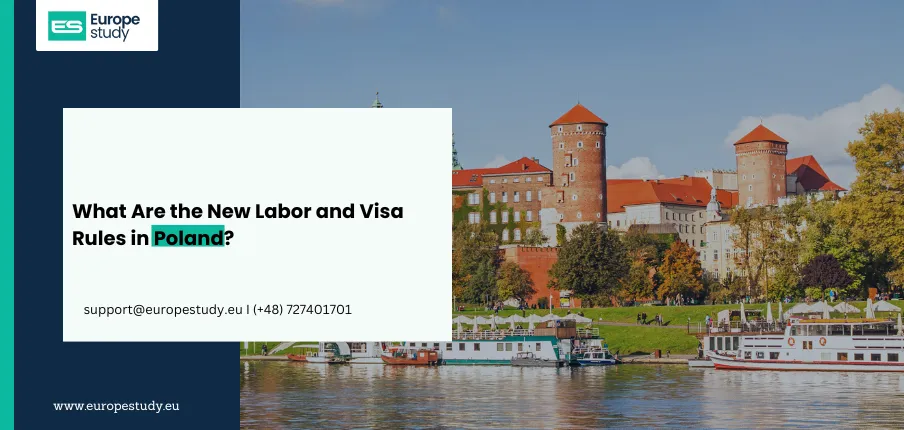
What Are the New Labor and Visa Rules in Poland?
In June 2025, Poland introduced major updates to its labor and immigration regulations. These changes aim to improve oversight, modernize the foreign hiring process, and respond to shifts in the job market. Whether you're a job seeker or an employer, it’s essential to understand how the new rules affect your responsibilities and rights.
No More Labor Market Test
Previously, employers had to prove that no Polish or EU national was available for a job before hiring a foreigner. This requirement has been eliminated.
Instead, regional labor offices now have the authority to issue lists of occupations that may be restricted for foreign workers in areas with high local unemployment. Employers must consult these lists before starting the hiring process.
Contract and Language Requirements
Foreign nationals must now be hired using standard employment contracts. Civil law contracts, such as contracts for specific tasks or freelance arrangements, are generally not accepted for work permit purposes.
Key contract requirements include:
- The contract must be signed before the employee starts working
- It must be provided in both Polish and a language the employee understands
- If the contract is not bilingual, an official sworn translation is required
This ensures workers are fully informed about their employment terms.
Stricter Reporting Obligations for Employers
Employers now have only seven days to report key employment events to the authorities, such as:
- A foreign employee not starting work as expected
- An interruption in work lasting more than two months
- Early termination of employment
- Any changes to job title, duties, or location
Employers are also required to maintain accurate records, including the employee’s passport, visa or residence information, contract details, and payroll data. These must be kept for the duration of employment and for two additional years afterward.
Permit Duration Limits
Work permits are now subject to more specific duration criteria:
- Foreign workers employed part-time (less than 20 hours per week) or hired by newly established companies (operating less than one year) will receive permits valid for no more than 12 months
- Employment contracts must cover at least one-quarter of a full-time schedule to qualify for a permit
This discourages the use of permits for informal or minimal employment arrangements.
Salary and Benefit Standards
To obtain a work permit, the job offered must meet key financial conditions:
- The wage must be equal to or higher than what Polish workers in the same role receive
- The job must comply with national minimum wage laws (approx. 4,666 PLN per month in 2025)
- Wages must be paid through legal, traceable financial channels
These rules are designed to protect foreign workers from exploitation and maintain fair competition in the labor market.
Simplified Procedures for Certain Countries
Citizens of selected countries, including Ukraine, Belarus, Moldova, Georgia, Armenia, Nepal, and Bangladesh, may still be eligible for the simplified procedure involving a declaration of employment, valid for up to 24 months. However, this does not exempt employers or workers from the other legal and reporting obligations introduced in 2025.
Visa Restrictions for Workers
The new law clarifies that not all visa types allow employment. Foreigners holding the following visa types are no longer eligible to work in Poland:
- Tourist visas
- Visas issued by other Schengen countries
- Visas for family visits, medical treatment, or cultural activities
Foreign workers must ensure that their visa or residence status explicitly allows for employment in Poland.
Increased Penalties for Non-Compliance
Employers and intermediaries who fail to comply with the new rules may face:
- Fines ranging from 3,000 to 50,000 PLN per offense
- Temporary or permanent bans on hiring foreign nationals
- Rejection of future work permit applications
- Legal action and labor inspections
Penalties apply not only to unregistered employment but also to administrative errors and late reporting.
Final Thoughts
Poland’s 2025 labor and visa reforms reflect the country’s effort to modernize its workforce policies while ensuring fairness and transparency.
For foreign workers:
- Confirm your employment and visa documents are compliant
- Understand your contract and rights before starting work
For employers:
- Use approved employment contracts and meet reporting deadlines
- Maintain accurate documentation and salary compliance
These rules are designed to create a fairer, more regulated labor market in Poland—benefiting both workers and employers alike.





